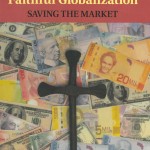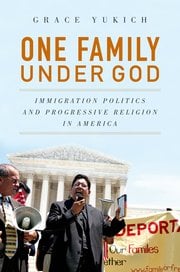OK, I’ve been at it again, meaning that I’ve been exploring associations between various measures in the New Family Structures Study (the NFSS). I realize I’ve treated readers to blog entries like this before, including here, here, and here, but I can’t help myself. Such are social science data nerds. I’ve come across another puzzle worth sharing with you.
At the risk of sounding blunt, crass, and insensitive, the NFSS data clearly reveal that—for whatever reason—more politically liberal 18-39-year-old women report wanting more sex than they’ve been having. (No such association appears among men. In keeping with nearly all research on sexuality and gender, men display less variance on most matters sexual.)
Here’s how we know. The NFSS posed this question to respondents:
Are you content with the amount of sex you are having?
Respondents could answer in one of three ways: (1) Yes; (2) No, I’d prefer more; or (3) No, I’d prefer less. Now, before you throw around claims of misogyny, take some comfort in knowing that I don’t think answer #3 is somehow inherently more correct than #2. Good grief. My job here is interpretation.
Here are the simple numbers: 16% of “very conservative” women say they’d prefer more, compared with 29% of conservative women, 31% of moderates, 47% of liberals, and 50% of “very liberal” women.
It’s generally linear, with the most notable bump between moderates and liberals. More politically-liberal women are quite clearly apt to say they’d prefer more.
Huh.
And, remarkably, it isn’t much affected by how much sex they’ve actually had recently. That is, while greater recent frequency of sex predicts less desire for more sex, it does nothing to diminish the link between political liberalism and wanting more sex. And women of all political stripes report statistically-comparable frequency of sex.
In regression models, the measure of political liberalism remains significantly associated with the odds of wanting more sex even after controlling for the frequency of actual intercourse over the past two weeks, their age, marital status, education level, whether they’ve masturbated recently, their anxiety level, sexual orientation, race/ethnicity, depressive symptoms, and porn use. Many of these are significant predictors of wanting more sex. And still the political thing matters.
I realize I’m a geek for statistics in this domain, but that is interesting, and begs for interpretation. I’ve said elsewhere—in Chapter 6 of my second book and blogged about here, here, and here—that measures of political conservatism or liberalism are clearly reflecting more than just Republican or Democratic Party affiliation or voting habits. No, they’re about people’s embedded-ness in distinctive worldviews and sets of meanings.
With regard to sex and sexuality, being more liberal means being more likely to value sexual expression as a good-in-itself, not only a means to an end or contingent on the context (such as being in a relationship, or being married). Talk of “sexual health” is also more common among them and typically assumes acts of sexual expression. In this perspective, persons have almost a moral obligation to express their sexuality in actions of their own choosing; pleasure is reached for, and should be. Sexual expression among them is perceived in personal terms at least as much as it is in relational ones (I’m thinking of how people talk about their sex life.) Note, for example, how the Lena Dunham political ad mightily aggravated conservative sentiments about sexuality. Obama twentysomethings generally thought it was clever and cute.
All that may be true, but I’m still not sure it explains why liberal women want more sex, regardless of how much they’re already having.
I floated this to a female friend, an economist, who offered this four-part theory:
1. More liberal women are less likely to be religious. (In the NFSS and other datasets, she’s correct in this).
2. Given that, more liberal women are therefore more likely to have a difficult time attributing transcendent value to aspects of life such as their work, relationships, children, and daily tasks. Some scholars speak of this as “sanctifying daily life.” In other words, liberal women are less apt to conceive of mundane, material life as imbued with or reflecting the sacred.
3. Nevertheless, most people experience sexual expression as–in some significant way–transcendent, or higher-than-other-experiences.
4. More liberal women therefore want to have more sex because they feel the lack of sufficient transcendence in life. If sex is one of the few pathways to it, then it’s sensible to desire more of it.
Basically, liberal women substitute sex for religion. (A data-less argument of sorts toward that end was serendipitously made on CNN.com yesterday.)
So I added religious service attendance to the regression model described earlier, predicting wanting more sex, and—wouldn’t you know it—political liberalism finally went silent as a predictor. Barely.
Other theories are welcome…











